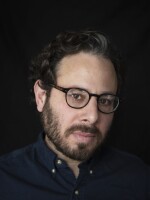All week, the astronauts of space shuttle Atlantis have been serenaded with music from stars back on Earth. Elton John, Michael Stipe and Paul McCartney have all recorded messages for the crew.
According to NASA, the tradition of waking astronauts up with music dates back at least as far as the Apollo program in the 1970s. The choice of what to play on the space shuttle belongs to the CAPCOM, or capsule communicator, an astronaut on the ground in Houston. Chris Hadfield, who has served as CAPCOM on space shuttle and International Space Station missions, says it's no trifling responsibility.
"A long time ago, we realized that if you could give the crew some great, familiar, energetic, rev-you-up kind of music in the morning, that's a good way to get going," says Hadfield. "Sometimes we just choose it ourselves. Sometimes we ask the spouses, the husbands and wives of astronauts. You try and choose something that's specific for that person."
Music has also played an important role in the space program back on Earth. Former astronaut Brewster Shaw remembers when the shuttle fleet was grounded after the Challenger disaster in 1986.
"Morale, as you can imagine, was pretty low," says Shaw. "We weren't flying. And we'd killed seven of our buddies. And people were struggling with the future. So somebody came up with an idea: Let's have a sock hop."
Shaw had played guitar in a band in college, and he knew a few other astronauts could play. So in June 1987, the world's first and only all-astronaut band, Max Q, took the stage for the first time.
Max Q has been performing ever since, whenever its astronaut members can find the time to rehearse. The founding members all retired years ago, but new astronauts stepped in to take their places. Brewster Shaw says he's not surprised that so many astronauts are also passable musicians.
"You have people who are able to quickly pick up and accomplish tasks in areas totally outside their field of training," he says. "Those kind of people are very likely to have enjoyed music, and been able to play something musical, so you just recruit them into the band." He adds, "There's not a lot of pressure — it's pretty much you just have fun and do it. Nobody gives a damn if you're any good, because you're just a bunch of astronauts."
Not many people are likely to mistake Max Q for a touring rock band. (The pleated pants are a dead giveaway.) But there are some dedicated musicians in the bunch, a few of whom have even brought their instruments with them into orbit. Chris Hadfield, a guitarist and current Max Q member, is one of them. He's looking forward to playing during his trip to the International Space Station next year.
"It's busy," says Hadfield, "but there is some downtime. Evenings and mornings. And I'm definitely going to be taking that time to play music, to sit and try to write. It's just such an inspirational and rare place for a human being to be in this early stage of space exploration. And I want to do my best to not just record it in pictures and words, but in music as well."
The space shuttle program may be coming to an end this week. But as long as there are astronauts and gigs to play, Hadfield says, Max Q's mission will continue.
Copyright 2020 NPR. To see more, visit https://www.npr.org. 9(MDAxNDQ2NDAxMDEyNzU2NzM2ODA3ZGI1ZA001))




